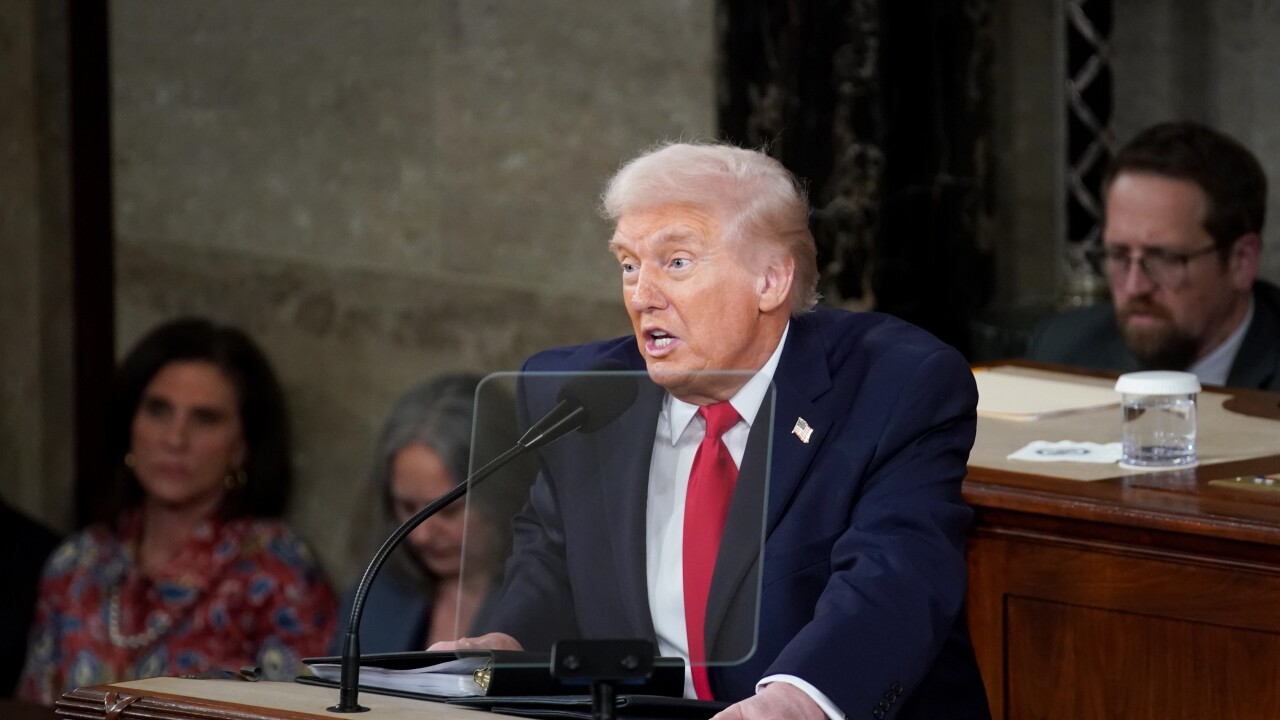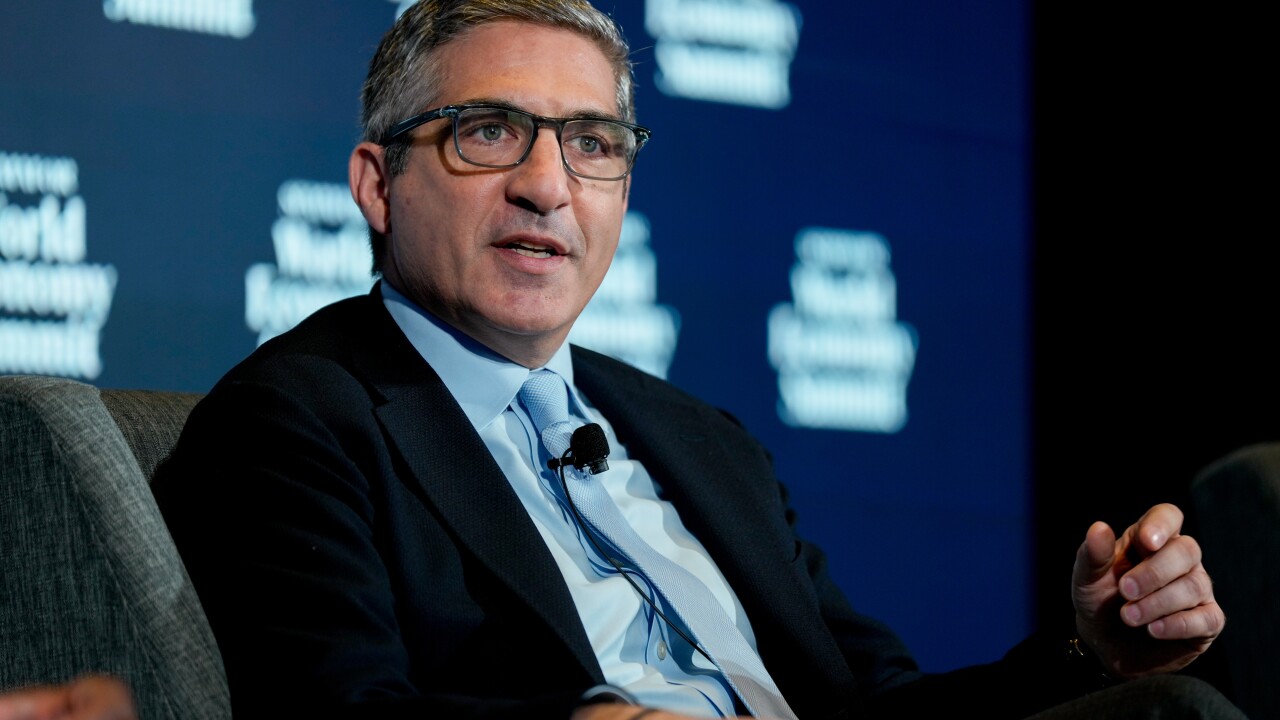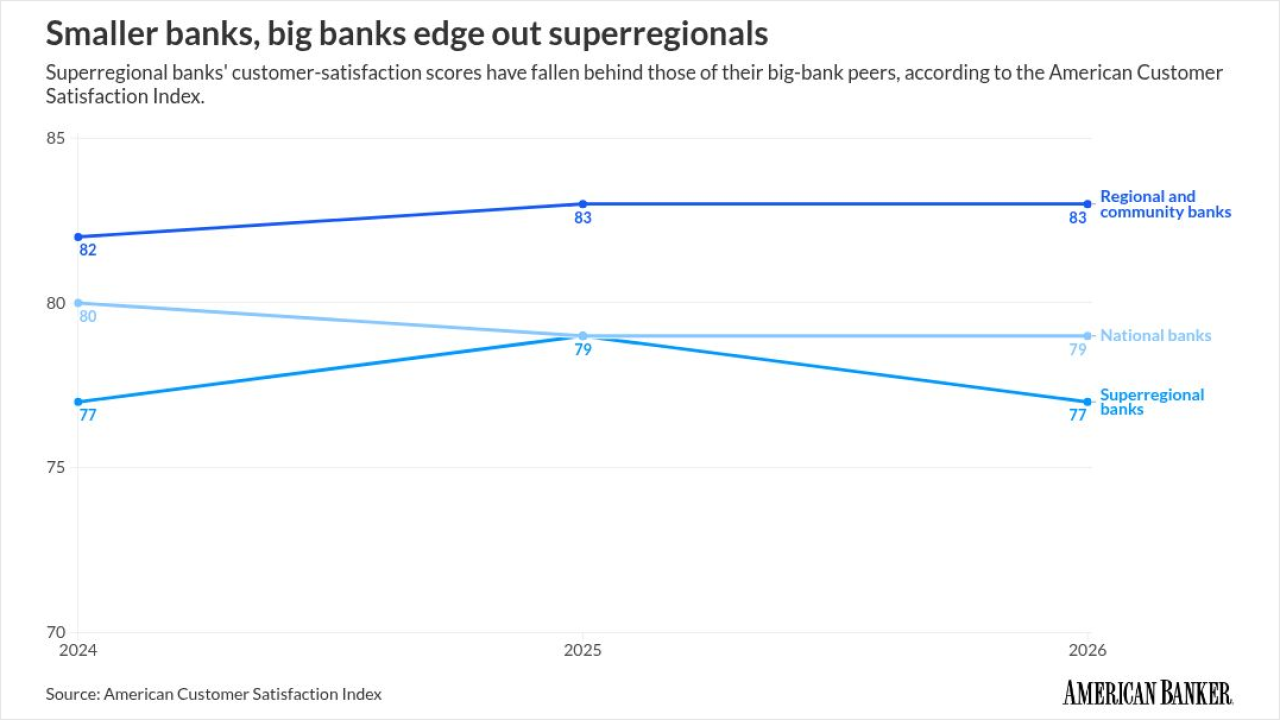House Banking Committee Democrats will oppose financial reform legislation unless consumer protection and community reinvestment laws are strengthened-demands that could crush the industry's already shaky support for the bill.
Processing Content
After meeting Wednesday night, the panel's 26 Democrats told House Banking Committee Chairman Jim Leach that any bill must:
Bar banks from selling insurance and other non-deposit products to any customer with a loan application pending.
Give consumers some control over their financial data.
Provide consumers the right to back out of a nondeposit product purchase.
"Consumers are our unifying force," said Rep. John LaFalce, D-N.Y., who presented his colleagues' demands to Rep. Leach. "We feel strongly that there must be greater protections."
Edward L. Yingling, chief lobbyist for the American Bankers Association, said the industry would try to block any bill that imposed new regulations. "If a significant amendment passed, it could well bring down the bill," he predicted.
Democrats also want to expand the Community Reinvestment Act to securities and insurance firms affiliated with banks. "There's a strong Democratic consensus to make sure CRA doesn't lose its relative importance as the universe of financial services expands," said Rep. Barney Frank, D- Mass.
While insurance and securities firms are the reform legislation's biggest supporters, such a provision would temper their enthusiasm.
"We are already significant investors in communities because we are the largest investor in municipal bonds," said Daniel Zielinski, spokesman for the American Insurance Association. "Adding this requirement would be excessive."
Democrats also complained that Rep. Leach is trying to move the legislation too quickly. The Iowa Republican wants the committee to begin voting June 11, even though his legislation won't be available until late today.
Rep. Leach said he will not postpone the vote and blamed the Clinton administration for the delay in forming a final bill. Treasury Department officials didn't finish the administration's plan until Monday, two months late.
Rep. Leach hasn't ruled out new consumer rules. "He's certainly interested in what they might suggest. He's not closing that door at all," a spokesman said.
Rep. LaFalce said he will not release the details of the Democrats' demands until Rep. Leach finishes his bill.
Still, Rep. Leach was angered by the Democrats' threat to oppose the bill and complained they are reneging on promises to help draft a bipartisan bill, according to staffers.
But Democrats said they won't back down. "There is nothing in this bill for their constituents," said a Democratic committee staffer. "They see it as big industry groups jockeying for each others' businesses and nothing for the little guy."
Without bipartisan support, Rep. Leach may not be able to get his committee to approve the much-contested bill, said Karen Petrou, president of ISD/Shaw.
"There's no sign of any consensus," she said. "If Democrats remain disciplined, Rep. Leach will have to hold Republicans on every vote, and I don't think he can."
Already threatening to sink the legislation, which would allow banks to merge with securities and insurance firms, are numerous industry disputes. Contentious issues include whether to let banks affiliate with nonfinancial firms, whether to merge the bank and thrift charters, and whether federal regulators should be able to preempt state laws on banks' insurance sales.
Insurance groups are lobbying furiously against proposals that would give banks new protection from state laws.
The American Council of Life Insurance and the American Insurance Association in separate letters to Rep. Leach this week also complained that the reform plan put forth by the Clinton administration would endanger the solvency of insurance companies by tapping their assets to bolster banking affiliates that get into trouble.
The Independent Bankers Association of America continued its opposition campaign, asking Rep. Leach in a June 4 letter to reject efforts to let banks invest in commercial businesses.
"To characterize the Treasury proposal as pro-community banking or pro- consumer takes an enormous leap of the imagination and defies credulity," wrote IBAA lobbyist Ronald K. Ence.





